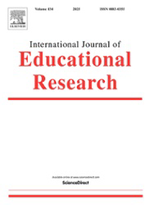Where is Russian higher education? The spatial imaginaries and realities of internationalization policy
The article considers how and at which recent historical and political junctures documents, experts and academics frame the …
The “Russian Hawks” and the Kremlin
Previously marginal revanchist intellectuals have been producing grandiose ideological theorisations, that are now at the core of state-sanctioned narratives legitimising Russia’s invasion of Ukraine. There is however little evidence that the “hawks” can effectively constrain the Kremlin’s policy choices.
zavtra.ru_ru - Full text corpus based on the website of Russian weekly newspaper 'Zavtra' (in Russian, 1996-2024)
Full text of all articles published on zavtra.ru with metadata, in tabular format.
Why Kyiv cannot possibly fix the 'root causes' of the conflict
No amount of unilateral Ukrainian concessions would address what Russia considers the ‘root causes’ of the conflict.
Russian state institutions full-text datasets
A collection of corpora based on contents extracted from the websites of Russian state institutions
On Ukrainians and Russians as 'One People'
Originally posted on the Fediverse
“Ukrainians and Russians as ‘One People’: An Ideologeme and its Genesis”, by Pål Kolstø, has been published open access last week.
It offers some context on the use of related concepts applied to Russians and Ukrainians (and Belarusians): “triune nation” (mostly Tsarist), “brotherly peoples” (mostly Soviet), and “one people” (both pre-Soviet and present).
Putin himself used all of them, but eventually seems to prefer the “one people” line: Russians and Ukrainians are just one people, i.
Who said it first? Investigating the diffusion of the Kremlin’s buzzwords before they entered the mainstream
Paper presented at the European ASN in Cluj-Napoca
On Prigozhin, and Putin's 'power vertical'
Originally posted on the Fediverse
“Wagner group chief Yevgeny Prigozhin has launched another diatribe against the Russian army. Is he a loose cannon, or a Kremlin puppet?”
https://www.theguardian.com/commentisfree/2023/jun/09/russian-armed-forces-infighting-yevgeny-prigozhin
I’m still all in the “Kremlin puppet” camp; he still has no power that is independent of the tutelage he receives from the Kremlin. Fundamentally, Prigozhin has no power base that would allow him to run a half-decent coup. He is no alternative to the Kremlin.
On mind-reading, Putin, and not so fuzzy goals
A comment posted in response to Sam Greene’s 11 February 2023 newsletter.
I feel there is good reason why Simonyan would want her audiences to believe that those goals were so fuzzy as to have no actual meaning, and hence part of a genius strategy that leaves adversaries clueless.
These goals may have been “purposefully vague”, but they still had a discernible meaning, and it’s now convenient to pretend they didn’t for obvious reasons.
Nationalist TV shows in Russia - Tsargrad.tv
[Originally posted to the Fediverse - Source]
I have looked at a full broadcast live yesterday night on (nationalist) Tsargrad TV, and rather than the outrageous quotes that inevitably emerge - and are inevitably picked up by the BBC’s great Francis Scarr - what I found more interesting was the framing, i.e. let’s talk about the issues that the authorities don’t want to talk about, as what they say does not make sense.


